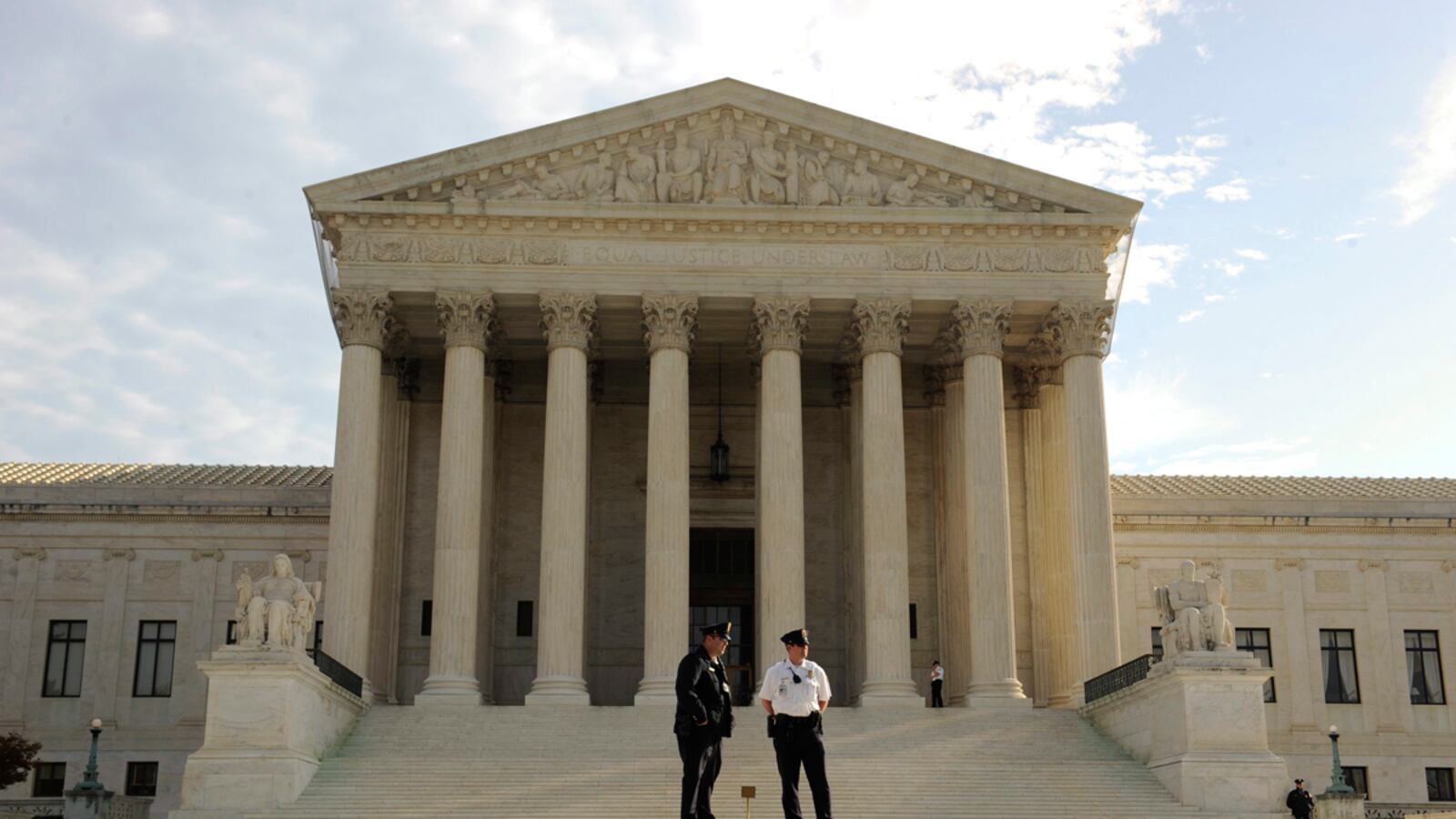The Supreme Court is now on track to pass judgment on Obamacare at the worst possible moment. Its opinion will come down in late June, just as the presidential race is heating up. Whatever it decides on the merits, the Court will do terrible damage to its own standing as an institution.
The politicizing effect will resemble Bush v. Gore. Once again, we will see a closely divided bench, split roughly on party lines, intervening decisively in presidential politics. While the court recovered from its last intervention fairly well, it shouldn’t underestimate the risks of a repeat performance.
There is a way out—provided by one of the cases the court has set down for review. In Liberty University v. Geithner, the Fourth Circuit held that federal courts lacked jurisdiction to hear the key challenge to the health-care statute until 2015. It held that the Anti-Injunction Act prohibited plaintiffs from going to court until they actually receive a bill from the Internal Revenue Service. This won’t happen until the individual mandate goes into effect in 2015.
The Anti-Injunction Act was passed in 1869 to prevent the Treasury from wasting its time defending against premature taxpayer suits. Over the past century, its provisions have been read broadly by generations of Supreme Court justices. In her opinion for the Fourth Circuit, Judge Diana Motz convincingly shows that these precedents bar the present lawsuits. Her conclusion was recently reinforced by an excellent dissent filed by Brett Kavanaugh to the D.C. Circuit’s decision to reach the merits. This convergence is particularly significant, since Motz was appointed by President Clinton and Kavanaugh by President George W. Bush. In these politicized times, bipartisanship in judicial opinions is especially to be prized.

The case for the Anti-Injunction Act is reinforced by its Catch-22 relationship to the substantive arguments over the individual mandate. Most commentary has focused on whether the individual mandate can be upheld under Congress’s power to regulate interstate commerce. But the Constitution’s grant of authority to impose “excise taxes” provides even stronger support, since it undercuts the principal argument against the statute.
Under this now-familiar objection, Congress can’t penalize somebody for refusing to buy insurance. Instead, consumers can only be penalized when they buy something, not when they stand on the sidelines of the marketplace. But this claim was directly rejected by the leading Supreme Court case on the subject, written by Justice Benjamin Cardozo upholding Social Security during the New Deal. As he explained, the Founders “knew more about ways of taxing than some of their descendants seem to be willing to concede” [301 US 548, 580]. Cardozo explicitly noted that the original understanding of an “excise” went far beyond commodity taxes to include excises on such matters as “births and burials.”
Which brings us to Catch-22. If the justices rush to judgment, they will be inclined to downplay the force of Cardozo’s decision. If they conclude that the individual mandate is indeed an “excise tax,” the Anti-Injunction Act forbids them from saying so until 2015. This will lead them to focus too much of their attention on the commerce clause, at the expense of constitutional provisions granting extremely broad powers of taxation to the federal government.
So a quick decision will not only damage the Court’s standing as an impartial institution, it will distort the court’s legal judgment as well. Worse yet, if the court does come out against Obamacare, it can well preempt the decision of the American people in November. There is a substantial chance that the Republicans will carry the presidency and both houses of Congress. Their first order of business will be the repeal of the individual mandate. But if the court strikes it down first, this will only emphasize the anti-democratic character of its intervention. Why in the world did it spend five and half hours of oral argument, and countless weeks of intense discussion behind the scenes, confronting an issue whose fate was going to be resolved by vote of the American people?





